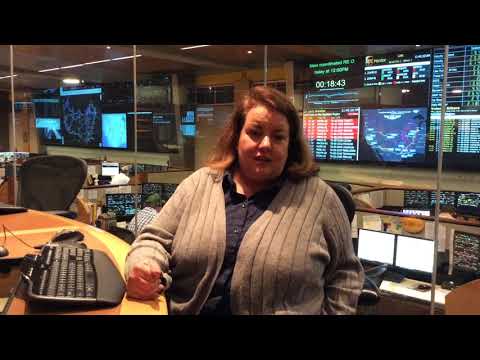Train Dispatching Job: Description & Salary
Train Dispatching Job Description and Salary
Train dispatching is a crucial role in the smooth operation of railway systems. As a train dispatcher, you will be responsible for coordinating and controlling the movement of trains, ensuring their safe and efficient operation. Your primary duties will include monitoring train schedules, communicating with train crews, and making decisions to prevent delays or accidents.
In this role, you will use advanced technology and computer systems to track train locations, monitor speed and progress, and adjust schedules as needed. You will also collaborate with other dispatchers, railway personnel, and external stakeholders to maintain effective communication and ensure the timely arrival and departure of trains.
As for the train dispatching salary, it can vary depending on factors such as experience, location, and the specific railway company. On average, train dispatchers can earn a competitive salary, with entry-level positions starting around $40,000 per year. With experience and additional responsibilities, this can increase to an average of $70,000 per year or more.
A career in train dispatching requires strong organizational skills, attention to detail, and the ability to make quick decisions under pressure. It is a vital role that ensures the safe and efficient transportation of passengers and goods by rail. If you have a passion for logistics, problem-solving, and working in a fast-paced environment, a job in train dispatching could be a rewarding and fulfilling career choice.

Train Dispatching Job Description Template
Train Dispatching Job Description
Train dispatching is a critical role within the transportation industry that ensures the safe and efficient movement of trains. Dispatchers are responsible for coordinating and managing the train schedules, as well as communicating with train operators, rail yard personnel, and other relevant parties.
The primary duty of train dispatchers is to create and maintain train schedules, taking into account various factors such as track availability, train speed, and weather conditions. They use specialized software and systems to track the location of trains and update their schedules accordingly. Dispatchers must also consider the needs of different train operators and prioritize their requests for track usage.
Communication is a vital aspect of the job, as dispatchers must relay important information to train operators and other personnel. They use various means of communication, including radios and computer systems, to provide instructions, updates, and any necessary emergency information. Dispatchers must possess excellent communication skills to effectively convey information in a clear and concise manner.
Another key responsibility of train dispatchers is to monitor train movements in real-time. They constantly track train locations, speeds, and any potential issues that may arise. Dispatchers must be prepared to respond quickly and make necessary adjustments to the train schedules to avoid delays or disruptions.
In summary, train dispatching is a challenging and crucial position that requires strong organizational skills, effective communication abilities, and the ability to make quick decisions. Dispatchers play a vital role in ensuring the safe and efficient operation of train transportation systems.
Train Dispatching Responsibilities
Train Dispatching Requirements
How Much Does A Train Dispatching Make?
Train Dispatching Salary
| Position | Salary Range |
|---|---|
| Train Dispatcher | $40,000 – $60,000 |
| Senior Train Dispatcher | $60,000 – $80,000 |
| Chief Train Dispatcher | $80,000 – $100,000 |
In the field of train dispatching, salaries range based on the level of experience and responsibility. A Train Dispatcher can earn anywhere between $40,000 and $60,000 annually. With more experience and expertise, individuals can progress to the role of a Senior Train Dispatcher, earning between $60,000 and $80,000. The highest position in this field is the Chief Train Dispatcher, who can earn between $80,000 and $100,000. These salaries are subject to variation based on factors such as location, company size, and industry demand.
Train Dispatching Salaries by Country
Top Paying Countries for Train Dispatching
| Country | Average Salary (USD) |
|---|---|
| United States | 80,000 |
| Canada | 70,000 |
| Australia | 60,000 |
| Germany | 55,000 |
| United Kingdom | 50,000 |
Train dispatching is an important role in the efficient and safe operation of railway systems. The salaries for train dispatchers vary across different countries. According to available data, the top paying countries for train dispatching include the United States, Canada, Australia, Germany, and the United Kingdom. In the United States, train dispatchers earn an average salary of $80,000 per year. In Canada, the average salary is around $70,000, while in Australia it is $60,000. In Germany, train dispatchers earn an average of $55,000, and in the United Kingdom, the average salary is $50,000. These figures may vary depending on factors such as experience, qualifications, and the specific railway company. Train dispatching offers a rewarding career with competitive salaries in these top paying countries.
A video on the topic Train Dispatching
Interview Questions for Train Dispatching
1. What is train dispatching?
Train dispatching is the process of controlling and managing the movement of trains on a railway network. It involves making decisions on train routing, scheduling, and ensuring safe and efficient operations.
2. What are the main responsibilities of a train dispatcher?
A train dispatcher is responsible for coordinating the movement of trains, ensuring adherence to schedules, managing train routes, communicating with train crews and other personnel, and responding to emergencies or disruptions in service.
3. What skills are needed to become a train dispatcher?
To become a train dispatcher, one needs strong decision-making and problem-solving skills, excellent communication and coordination abilities, attention to detail, the ability to work under pressure, and knowledge of railway operations and safety protocols.
4. How does a train dispatcher communicate with train crews?
A train dispatcher communicates with train crews through various means, including radio communication systems, telephone, and computerized messaging systems. They provide instructions, updates on train movements, and address any concerns or issues raised by the train crews.
5. How does a train dispatcher handle disruptions or emergencies?
During disruptions or emergencies, a train dispatcher assesses the situation, communicates with relevant personnel, and takes necessary actions to ensure the safety of trains and passengers. This may involve rerouting trains, adjusting schedules, or coordinating with emergency response teams.
6. What tools or technologies are used in train dispatching?
Train dispatching relies on various tools and technologies, including computerized train control systems, signaling systems, train tracking software, communication systems, and real-time data analysis tools. These help in monitoring train movements and making informed decisions.
7. How does train dispatching contribute to railway safety?
Train dispatching plays a crucial role in maintaining railway safety. Dispatchers ensure that trains are spaced appropriately, adhere to speed limits, and avoid collisions or conflicts on the tracks. They also respond promptly to any safety concerns or incidents that occur during train operations.
8. What challenges do train dispatchers face?
Train dispatchers face challenges such as managing complex schedules, coordinating multiple trains on the same tracks, dealing with unexpected disruptions or delays, and making quick decisions in high-pressure situations. They must also stay updated on changes in railway regulations and technologies.
9. How does train dispatching impact train efficiency and reliability?
Effective train dispatching improves train efficiency and reliability by optimizing train movements, reducing delays, and minimizing conflicts between trains. Dispatchers ensure that trains operate according to schedules, which improves punctuality and customer satisfaction.
10. How do train dispatchers collaborate with other railway personnel?
Train dispatchers collaborate with various railway personnel, including train conductors, engineers, maintenance teams, and station staff. They coordinate with these individuals to ensure smooth operations, address issues, and provide necessary information for safe and efficient train movements.






